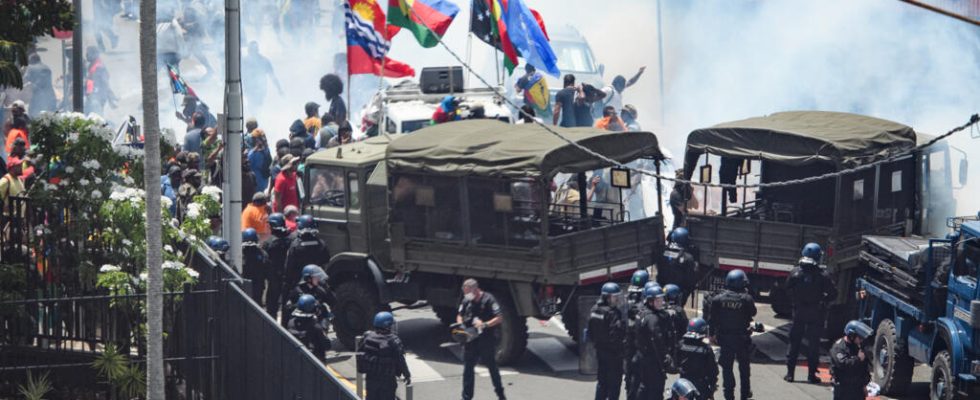Two squadrons of gendarmes were sent as reinforcements to New Caledonia for the weekend. The French Pacific territory is under high tension, on the eve of two demonstrations; separatists and loyalists will march separately on Saturday April 13. The authorities are calling for calm, but anger is growing around ongoing negotiations aimed at expanding the electorate.
2 mins
Two political camps are confronting each other in New Caledonia and will be in the streets on Saturday April 13. At the heart of this tension, the reform of the electoral body. The French government wants to expand it and reverse the rule which excludes newcomers from elections. Established in 1998 by the Nouméa Agreement, the electorate for this ballot is in fact frozen, which has the consequence of depriving nearly one in five voters of the right to vote. Today this represents 45,000 French citizens.
This reform was approved on April 2 in the Senate, and it plans to allow all natives of New Caledonia, as well as residents who have lived for at least ten years, to vote in provincial elections. These elections are crucial in New Caledonia, where the provinces hold a large part of the powers in the territory. By giving the right to vote to people born or domiciled in New Caledonia for 10 years, in a territory with 270,000 inhabitants, the electoral balance would therefore be profoundly modified.
Read alsoNew Caledonia: loyalists and separatists face-to-face again
Quite technical, this constitutional revision exacerbates tensions between loyalists, opposed to independence, and separatists. Supporters of independence believe that the reform could work against them and marginalize them even more. In New Caledonia, the indigenous Kanaks represent 40% of the population. They have therefore been in the minority since the 1970s, under the effect of metropolitan immigration.
Agnès Kawamoto, 39 years old, native independence activist, believes that this reform aims to “ further minoritize the indigenous Kanak people » and that it would have been necessary to speak “ first of the content of a global (institutional) agreement » before addressing the specific question of the electorate, “ not the opposite “. The loyalists, for their part, approve a measure which strengthens their citizenship. The next provincial election is supposed to be held before December 15, 2024.
The bill must be adopted in the same terms in the National Assembly in Paris, before being approved by all the parliamentarians meeting in Congress in Versailles at the beginning of the summer, by three-fifths of the votes cast.
Read alsoNew Caledonia: postponement of provincial elections adopted in Parliament
